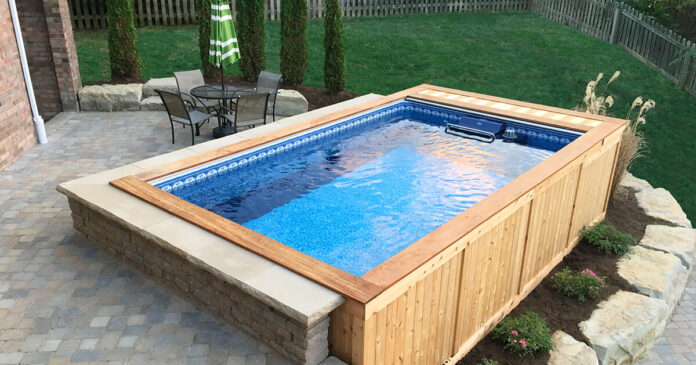Tell us something – are you preparing for the upcoming summer season yet? You have had enough of public city pools and want to bring refreshment right into your backyard to enjoy it in the privacy of your home. The children are delighted and can’t wait. Everything seems idyllic, except in your head, where there’s complete confusion. You’d like a pool above the ground, smaller in size to be adapted to the needs of children, among other things. But, oh well, so many questions. Not sure what to consider before making a decision? What are the pros and cons of such constructions? Is this really the best choice you could make? Be sure to continue to consult with others but pay attention to the following lines where you can find the answers you need.
Opinions on this topic are different. Some will prefer to invest a larger amount of money and build a pool of reinforced concrete that will last longer. However, not everyone can afford it, so families more often opt for this option. Undoubtedly, it has both good and bad sides that you need to pay attention to before you allow an intrusive seller to convince you to buy materials and the rest of the goods without you being sure that you want it.
Good sides
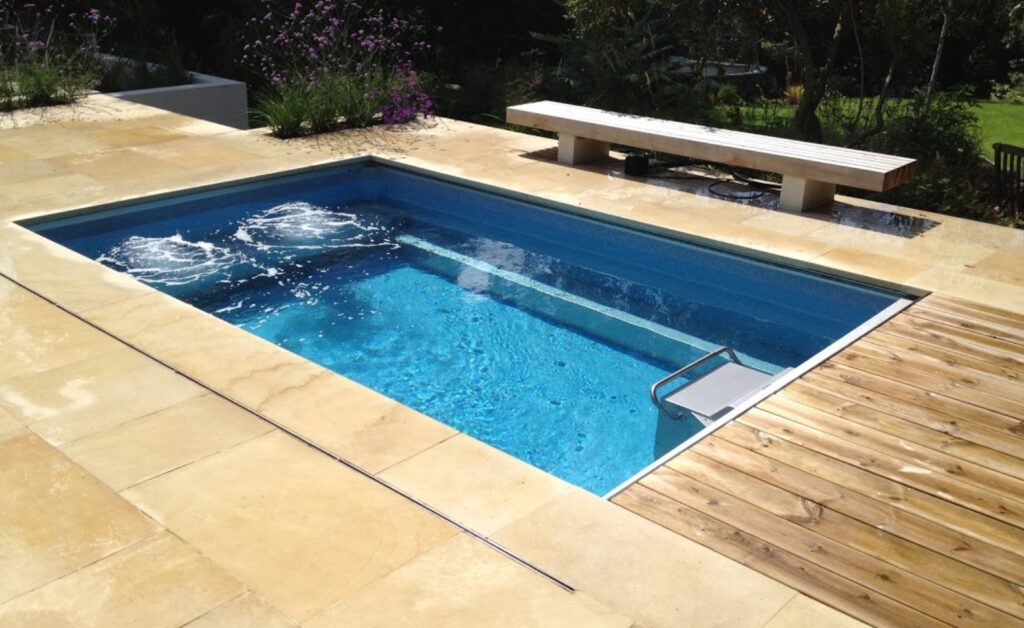
A more economical choice
First of all… so many types of above ground pools! Different dimensions, purposes, and materials can dictate the price. For that reason, it can’t be generally said that all such constructions are cheap. However, compared to in-ground ones, they can certainly be afforded with less hassle.
Since they’re mostly plastic or made of fiberglass, there’s no possibility of the desired design of the pool – their shape is predetermined and that makes them cheaper. The market price for construction is around $13 per square meter, which is basically amazing.
The difference in price is measured in thousands of dollars when it comes to the in-ground one. You usually get it along with all the other equipment you need for maintenance, which would cost more if purchased separately. The very fact that it lies above the ground shows that there are no costs of excavation or special manipulation of the soil.
Special skills for installation – not needed
This can definitely be singled out as one of the biggest advantages. You don’t have to wait weeks and months for your enjoyment. Depending on professional help isn’t necessary on this occasion.
Installing an above ground little pool is not a complicated process and anyone can do it alone or with the help of a friend. Simply place it where it suits you best and where you have prepared the appropriate substrate, connect the parts (or inflate it) and fill it with water.
Although… It’s often recommended to bring an installer. Just in case, you know. If there are any difficulties, there’s a possibility to seek help in one of the places like littlepools.com.au. where you find those with experience. Experts might make this process look as easy as ABC.
Nevertheless, only a little time and effort is needed, because there are no complicated and difficult actions, considering that there aren’t concreting, no excavation of the soil, or laying of tiles. That way, you’ll save some effort and the moment of enjoyment will come more quickly. Yay!
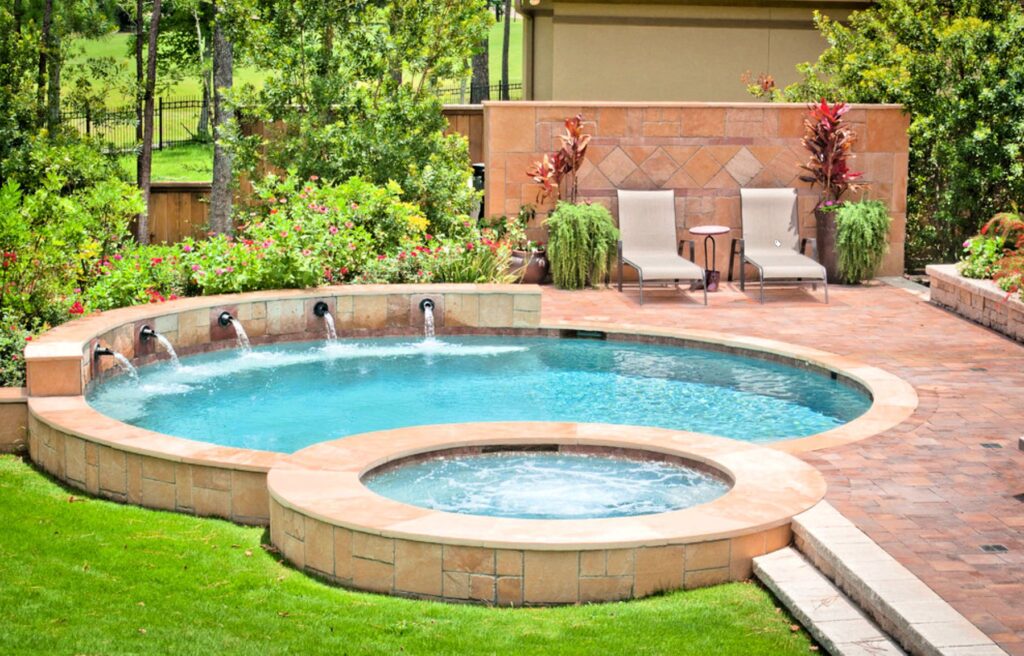
Easier maintenance
A case where you can completely avoid maintenance costs doesn’t exist. The process of filtering and purifying water is mandatory, regardless of which option you choose. With the fact that with some types it’s easier and cheaper than with others, your decision might be simpler to bring.
A pool above ground is much easier to repair (if there’s an issue) than the one that is in the ground. If you also have a warranty, it makes everything even better. In case you don’t have it, the repair is definitely cheaper compared to other types. The amount of water that stays inside is small, which makes cleaning and chlorination easier. The danger from beetles and other inhabitants of nature and ground is reduced to a minimum by being above its level.
What if you get bored?
Why is it necessary to think twice before deciding to invest in a swimming pool? Because some of them can lead you to big financial losses if it’s just your current whim. But not in this case.
The advantage of such an option is reflected in the fact that there are choices in case you have reacted recklessly. Sometimes you realize that you still spend your summers traveling and don’t use it or you’ve simply tasted this kind of relaxation and want change? Children grow up, things change and you realize that you have neither the will nor the desire to keep it going? No worries, you can always find an interested buyer and return a good part of the invested funds.
If your small pool inflates, simply pump the air out of it and put it in the garage or somewhere else until you want your little aqua space in the yard again.
Bad Sides
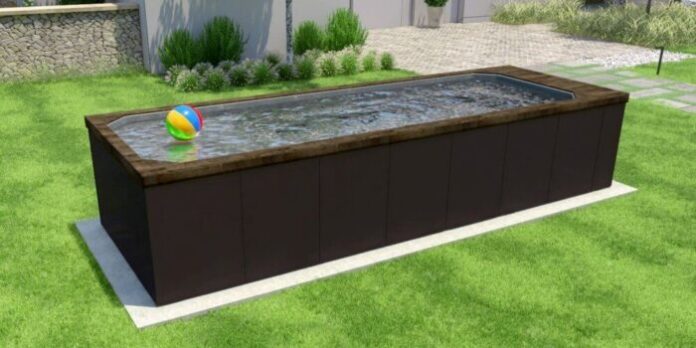
Smaller dimensions, restricted recreational space
Once you opted for the above-ground version you knew you were doing it because of your little kids, for example. Or for any other reason that you considered relevant enough. You need to be aware of the fact that you have automatically opted for reduced manipulative space.
As we mentioned earlier, the shape is predefined and there’s no space for making changes. The limitation of depth and width is evident, so you can’t expect your knee not to scratch the bottom when you swim or not to kick an edge with your foot. However, such versions are intended for the youngest ones and provide all the possibilities they need. Older people can enjoy a light relaxation sitting or leaning on the perimeter and sipping their favorite drink. So, it still doesn’t lose its relaxing properties, but they’re quite limited. Reinforced concrete in-ground constructions are still recommended for all active recreationists.
Weaker resistance to threats from the environment
Even with all the maintenance of this world, sometimes you can’t prevent something called destiny. A rule that applies to anything in life, including this too.
The only difference is that these variants are far less resistant to environmental influences than those of larger in-ground structures. When bad weather occurs, it can permanently damage the pool because its surface is more susceptible to destruction than tiles. Whether it’s raining or there’s a terrible hail, you can try to repair the holes with the equipment that came with the product, but the chances of fixing it are minimal.
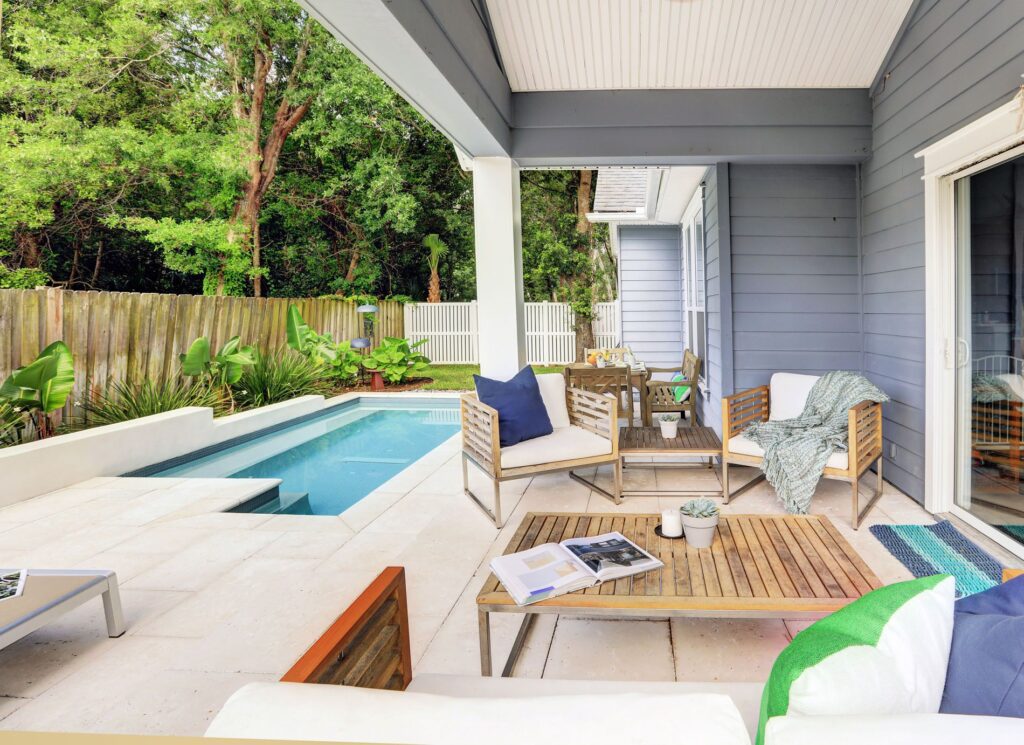
Short lifespan
The average lifespan of small above-ground pools is ten years. which, you’ll agree, is very small compared to large concrete ones that last up to 50 years. With perfect maintenance, it can be extended to 15 years but this is considered the maximum.
Sometimes it can also depend on the material. Fiberglass is the best and longest-lasting. Age is estimated at 20-25 years with all the necessary care. You need to be aware of the fact that a smaller investment carries greater risks.
Consider this article in accordance with your priorities, desires, and lifestyle. Base your personal choice on weighing between the bad sides that can give you headaches and the good sides that will make your family and you happy. When you measure everything, it will be easier for you to make the right choice.

